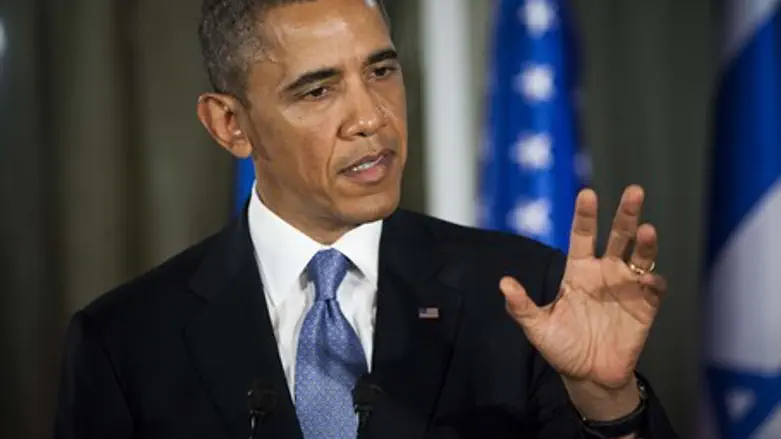
U.S. President Barack Obama says U.S. intelligence estimates show Iran is "a year or more away" from building a nuclear weapon.
In an interview with the Associated Press, Obama acknowledged that U.S. estimates were more conservative than those of Israel, which said Iran was much closer that that to building an atomic weapon.
President Obama also said the world must test whether Iran's President Hassan Rouhani was serious about resolving its nuclear dispute diplomatically.
His comments come after he held a short phone conversation with Rouhani on September 20, in the first direct contact between the two countries' top leadership in more than three decades.
Iran's supreme leader on Saturday backed President Hassan Rouhani's overtures to the West but criticised some aspects of the UN visit, during which he spoke with US counterpart Barack Obama.
The comments were the first public response by Ayatollah Ali Khamenei, who wields ultimate authority in Iran, to Rouhani's opening to the West in New York last week, which was capped by the historic 15-minute telephone conversation with Obama.
"We support the diplomatic initiative of the government and attach importance to its activities in this trip," Khamenei told military commanders and graduating cadets in remarks reported by his website, Khamenei.ir.
However he added – without elaborating – that "some of what happened in the New York trip was not appropriate... although we trust in our officials."
The telephone conversation on September 27 – the first diplomatic contact between Iranian and US presidents -- broke 34 years of icy relations between Tehran and Washington since the 1979 Islamic revolution.
For Khamenei, who has the final say on all matters of state including foreign policy, the suspicion runs deep.
"We are pessimistic towards the Americans and do not put any trust in them. The American government is untrustworthy, supercilious and unreasonable, and breaks its promises," he said.
Rouhani's visit to New York for the UN General Assembly came after Khamenei had given the government permission to show "heroic flexibility", raising Western hopes of a breakthrough in long-troubled talks on Iran's nuclear program.
"Heroic flexibility is very useful and necessary sometimes but with adherence to one main condition," Khamenei had told members of the elite Revolutionary Guards on September 17.
"A wrestler sometimes shows flexibility for technical reasons. But he does not forget about his opponent nor about his main objective," he said then.
There has also been public criticism of the Rouhani-Obama phone conversation from the Guards, which regards itself as the defender of the values of the revolution.
Its commander General Mohammad Ali Jafari said the Iranian president should have waited for US concessions before agreeing to the call.
But he too voiced broad support for Rouhani's "firm and appropriate position", adding that "tactical errors" could be "repaired".
